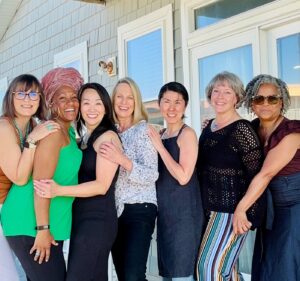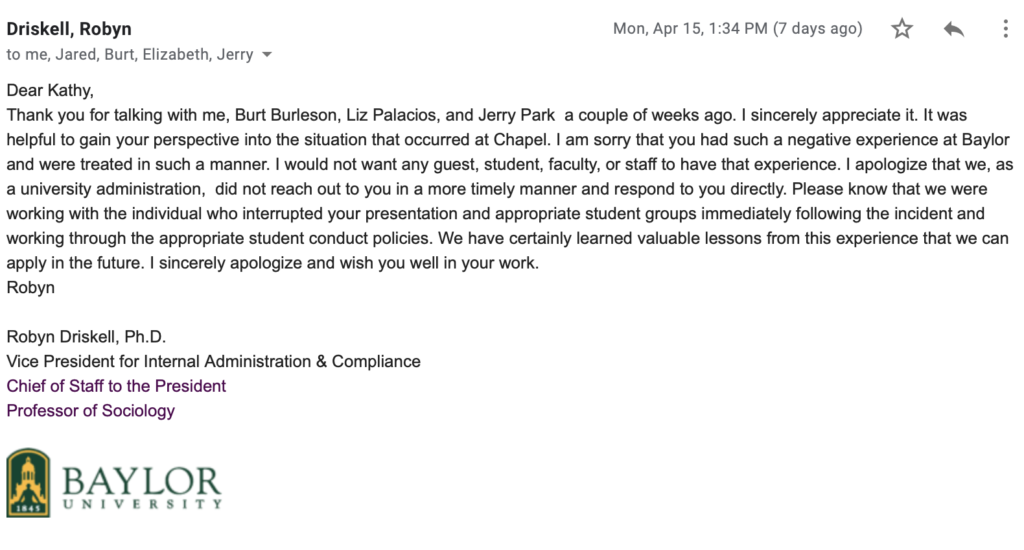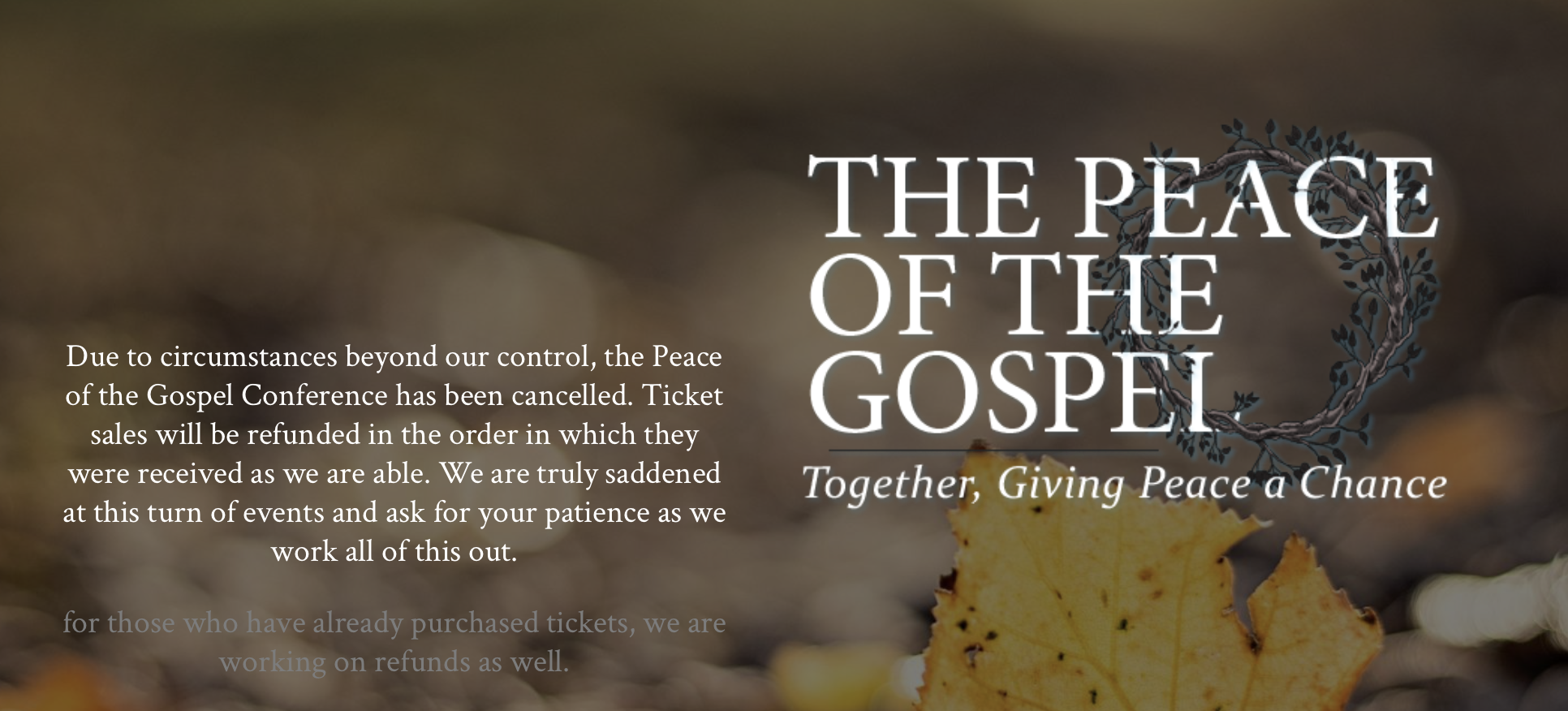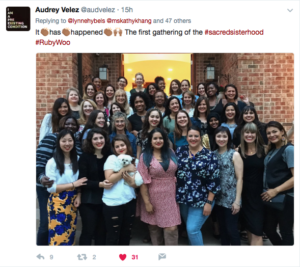I didn’t quite manage to stay standing. I took the idea of a cold plunge quite literally, my body plunging into the Atlantic daring my feet, knees, or hands to find solid ground. My Dear Readers, they did not. Somehow my contact lenses stayed in while I almost lost my dignity. The cold waters tossed me and my bikini as the laughter and screams of a group of women I had just met 48 hours prior competed with the crashing waves.
The entire weekend was a cold plunge of sorts, and all seven of us said yes.
I Don’t Know You
The invitation came from someone I had never met through someone I had met once. I know. It sounds ridiculous, but such is the nature of friendship and connections in these times. Connections that could’ve remained parasocial snapped into the world of flesh because Jeni asked friends, acquaintances, and strangers to take a risk and head to the beach.
When my longtime friends asked me why and with whom I was headed to the coast, I sounded absurd. I was headed to a beach house with six other women – four women I didn’t know at all – for a weekend with no agenda and no expectations. If this were a movie, I might be yelling at the screen, “DON’T DO IT!”
Old Friends Were Once Unknown
It took years to establish a group of “mom friends” in my current neighborhood. I was the mom of three, my oldest starting 3rd grade. The girl moms had already established themselves into groups. My own insecurities coupled with limited energy to insert myself into the circles of conversation meant loneliness. My middle child was starting kindergarten. I hoped to find other women eager to connect over the start of a 13-year journey for our children. It felt like speed dating – catching quick conversations, hoping I would click with someone, ANYONE. Most of the women were kind and polite, some were even warm and open, but the search continued.
It wasn’t until my youngest started kindergarten (two years after the move) I started to meet other
women who were mostly launching the first or second child off to school. We exchanged numbers not just to arrange play dates for our boys but also to coordinate our schedules so we could get to know each other while the kids played. Those gatherings evolved over years into what would be the start of “supper club” where playdates spilled into dinner time. We would gather from our respective homes the makings of a potluck or an order for pizza, talking until it was time to get the kids to bed.
When the Kids Grow Up
Some of my friendships did not make it out of the ebb and flow of my children’s friendships. We change and sometimes friendships do not make it beyond kids’ friendships, activities or schedules. The real miracle for me has been a group of mom friends who outlasted our kids’ childhoods. We have mourned and buried parents, celebrated each other’s children, laughed and cried over aging and disease. And if all that wasn’t enough, our husbands are friends geeking out over tech, movies, music, craft beer, and audiobooks.
We have taken a few trips together, collectively deciding future trips should include fewer than 20,000 daily steps and warmer weather. But this trip by the ocean was not with them. This trip wasn’t to replace the supper club but to see if the woman shaped by old friendships could still learn new things in new spaces.
Cold Plunges to Make New Friends
I hesitated.
One does not simply walk into a house with six strangers. We all had our own reasons. My reasons? Well, let’s just say after almost 20 years in the Christian Industrial Complex, I needed to believe I could still hope and dream. I didn’t want to become jaded. I didn’t want to stop taking risks. It was scary to jump on that plane, hop in the car, walk into the house. It’s humbling to walk into a room of women who didn’t know me the way I might be known if I was a conference speaker.
I wasn’t coached into this gathering, but I was coached into my first ocean cold plunge. Cha was our coach. She told all of us to push through the initial shock of the cold, to keep walking in, and breathe. Who knew you could walk into a room of strangers or jump into the ocean, push through the shock, and breathe?




